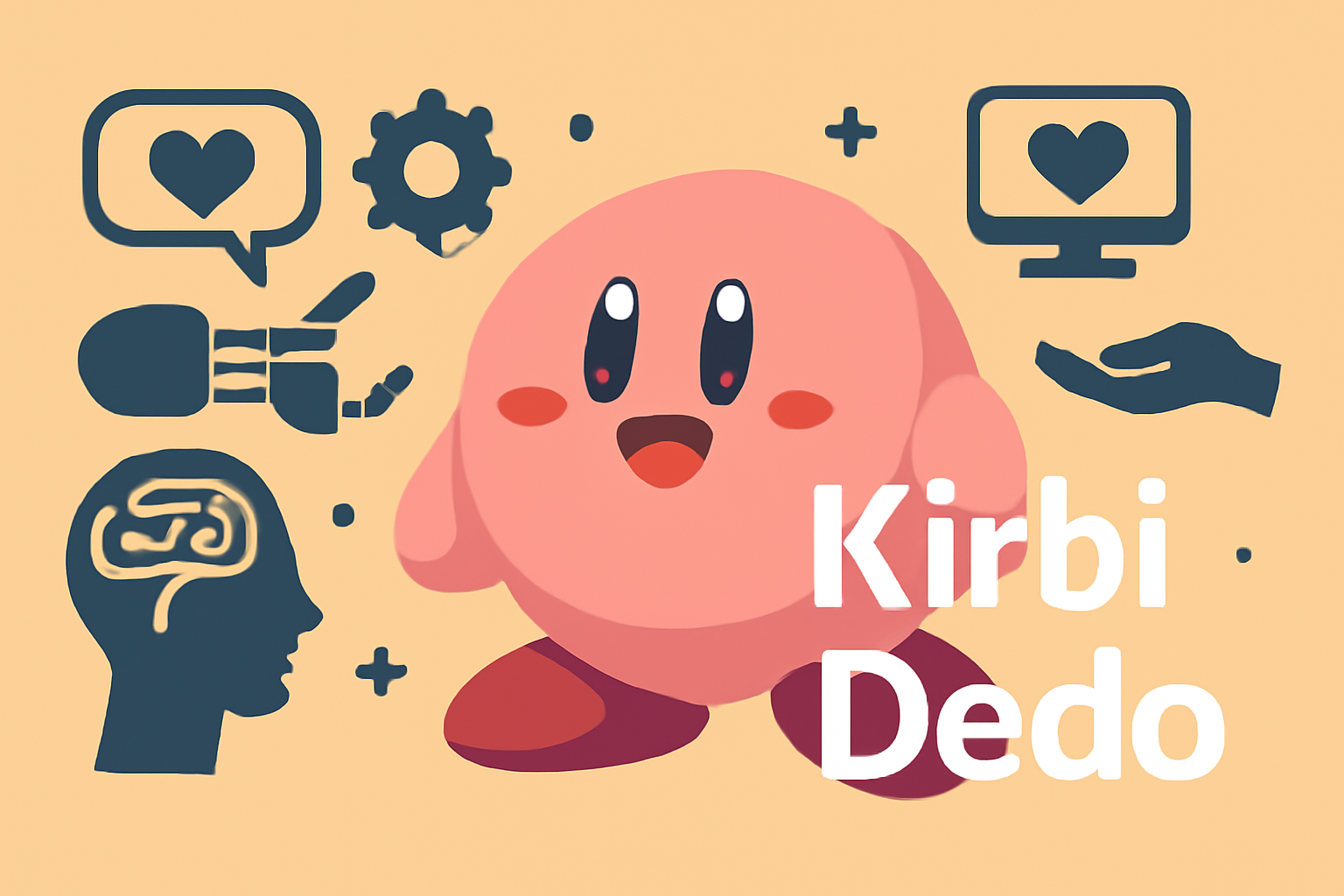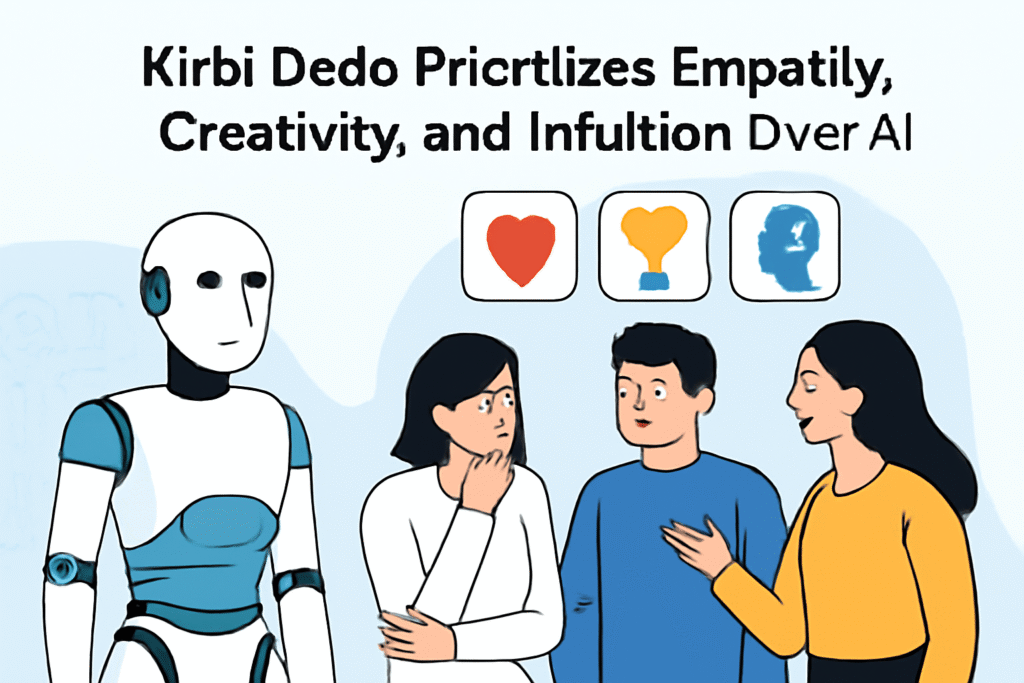
In today’s rapidly evolving technological landscape, the term “Kirbi Dedo” is beginning to shape conversations around AI-free and humanized technology. As artificial intelligence continues to infiltrate every facet of our lives, many people are seeking a return to more personal, human-driven technology. Kirbi Dedo promises to provide just that—offering solutions that prioritize the human touch while minimizing the influence of AI. But what exactly is Kirbi Dedo? And why is it such an essential concept in today’s world?
In this article, we will explore the definition, importance, and impact of Kirbi Dedo on various industries, demonstrating why it’s gaining traction as a forward-thinking, human-centered approach to technology. Whether you’re an industry professional, a tech enthusiast, or simply curious about the latest trends in tech, this article will give you all the insights you need into this exciting development.
What is Kirbi Dedo?
At its core, Kirbi Dedo is about moving away from an over-reliance on artificial intelligence and technology that feels detached from human emotions and behaviors. It represents an idea where technology is designed to serve people authentically, based on human values such as empathy, connection, and creativity.
Unlike AI-driven systems that often lack the nuanced understanding of human needs, Kirbi Dedo focuses on humanized technology. This means prioritizing design that feels personal, intuitive, and deeply rooted in the human experience. It’s an approach that creates solutions where humans, not machines, are at the center of decision-making, interactions, and overall user experiences.
Why is Kirbi Dedo Important?
As we navigate a digital world increasingly dominated by AI, it’s easy to forget the core of what makes human interactions so special—empathy, creativity, and intuition. With Kirbi Dedo, the focus shifts back to these values, ensuring that we never lose sight of what makes us human, even in an age where machines are increasingly taking over.
- Preserving Authentic Human Connection: Kirbi Dedo is crucial because it emphasizes authentic human connection. As automation and AI systems become more common, they often lead to impersonal experiences. Whether it’s customer service, online education, or social interactions, Kirbi Dedo ensures that technology supports rather than replaces human connection.
- Enhancing Trust and Ethics: One of the key challenges with AI is its detachment from ethical considerations. Kirbi Dedo fosters trust by emphasizing transparency and human oversight. It provides a safer, more ethically-grounded alternative to AI-based systems that are often shrouded in opacity.

How Does Kirbi Dedo Affect Various Industries?
From healthcare to entertainment, the influence of Kirbi Dedo is evident across various industries. As more sectors look for ways to humanize their technology, the principles of Kirbi Dedo are shaping the future of digital experiences.
Healthcare
In healthcare, technology should never replace the personal touch that doctors and nurses bring to their interactions with patients. Kirbi Dedo ensures that patient care remains human-centered, encouraging a balance between the benefits of AI (such as accurate diagnoses) and human empathy (such as compassionate communication).
By integrating Kirbi Dedo in healthcare systems, medical professionals are better equipped to provide emotionally supportive care that fosters healing in a way AI systems cannot replicate.
Education
Imagine a classroom where AI tutors assist in teaching, but it’s still the teacher who brings warmth and personal understanding to each student’s needs. Kirbi Dedo represents the ideal scenario where technology aids learning, but human interaction remains at the forefront. In this model, AI helps personalize learning experiences, while educators are able to provide the emotional support and nuanced teaching methods that are essential for student development.

Customer Service
The customer service industry is one area where Kirbi Dedo is truly transformative. AI chatbots and automated systems can often be cold and impersonal, leaving customers feeling frustrated. With Kirbi Dedo, the focus is on ensuring that customer service experiences remain warm, responsive, and personal. By providing employees with tools that enhance human connection, companies can offer a far superior customer experience.
The Benefits of Embracing Kirbi Dedo in Technology
- Improved Emotional Intelligence: One of the biggest challenges with AI is its lack of emotional intelligence. Kirbi Dedo brings back emotional depth in interactions by designing systems that understand and react to human feelings, making technology feel more human.
- Empowerment Through Human Decision-Making: With Kirbi Dedo, decisions are made by humans, not machines. This empowers individuals to make choices that feel right based on context, emotions, and values, not just data.
- Long-term Sustainability: Humanized tech, like Kirbi Dedo, is more sustainable in the long run. It fosters deep connections, trust, and loyalty, ensuring that relationships between people and technology are lasting and meaningful.
More Read About: Power of Dihward: Transformative Growth & Ethical Innovation
Kirbi Dedo vs AI-Driven Technology: A Comparison
| Feature | Kirbi Dedo | AI-Driven Technology |
| Human Connection | Prioritizes authentic human connection | Often impersonal and data-driven |
| Emotional Intelligence | High empathy and understanding | Limited emotional comprehension |
| Decision-Making | Driven by human intuition and ethics | Based on algorithms and data models |
| Transparency | Transparent and human-guided | Often opaque, controlled by AI logic |
| Customer Interaction | Personal, compassionate experience | Transactional, automated responses |
Embracing Humanized Tech: The Future of Innovation
The shift towards Kirbi Dedo-inspired technology is more than just a trend; it’s a fundamental change in how we interact with the digital world. While AI has its place in many industries, there is undeniable value in ensuring that technology complements human interaction rather than replacing it. The future of innovation lies in finding a balance—one where the best aspects of AI coexist with the human qualities that make life rich and meaningful.
Conclusion: A Bright Future for Kirbi Dedo
As we venture into 2025, Kirbi Dedo stands as a shining example of what’s possible when we put people back at the center of technology. Whether it’s healthcare, education, or customer service, embracing humanized tech offers numerous benefits, including greater empathy, trust, and emotional intelligence. In a world increasingly dominated by AI, Kirbi Dedo is the key to ensuring that we retain the human touch.
The message is clear: while AI can assist us, it’s human connection that will continue to drive meaningful progress in technology. Let’s build a future where technology is not only smart but also deeply human.
FAQ Section
What is Kirbi Dedo?
Kirbi Dedo is a concept that advocates for AI-free, humanized technology. It focuses on designing systems that prioritize human values, emotions, and decision-making over the use of artificial intelligence.
How does Kirbi Dedo differ from AI-driven technology?
Unlike AI-driven technology, which relies heavily on data and algorithms, Kirbi Dedo places human connection, empathy, and intuition at the center. It ensures that technology feels personal and human.
Why is humanized technology important in today’s world?
Humanized technology, like Kirbi Dedo, is essential because it helps maintain authentic, empathetic connections in a world increasingly dominated by automation and AI. It ensures that technology serves people, not the other way around.
Can Kirbi Dedo be applied in industries other than healthcare?
Yes, Kirbi Dedo can be applied in any industry where human interaction is essential. It is particularly impactful in fields like education, customer service, and entertainment, ensuring that technology complements human engagement.
What are the main benefits of Kirbi Dedo?
The main benefits of Kirbi Dedo include improved emotional intelligence, enhanced human decision-making, and more sustainable relationships between people and technology.






